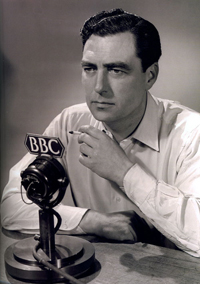A Quote by Francois de La Rochefoucauld
Few things are impossible in themselves: application to make them succeed fails us more often than the means.
Quote Topics
Related Quotes
Few things build a person up like affirmation. According to Webster’s New World Dictionary, Third College Edition (Simon and Schuster, 1991), the word affirm comes from ad firmare, which means “to make firm.” So when you affirm people, you make firm within them the things you see about them. Do that often enough, and the belief that solidifies within them will become stronger than the doubts they have about themselves.
Australianism' means single-minded determination to win - to win within the laws but, if necessary, to the last limit within them. It means where the 'impossible' is within the realm of what the human body can do, there are Australians who believe that they can do it - and who have succeeded often enough to make us wonder if anything is impossible to them. It means they have never lost a match - particularly a Test match - until the last run is scored or their last wicket down.
As a composer, I believe that music has the power to inspire a renewal of human consciousness, culture, and politics. And yet I refuse to make political art. More often than not political art fails as politics, and all too often it fails as art. To reach its fullest power, to be most moving and most fully useful to us, art must be itself.
You can have large projects and implement them by means of a few of the smallest things. Or you can use weak means that are more effective than strong ones, as Paul also said in his First Letter to the Corinthians. [...] The wisdom of discernment redeems the necessary ambiguity of life and helps us find the most appropriate means, which do not always coincide with what looks great and strong.
It has often been said that, to make discoveries, one must be ignorant. This opinion, mistaken in itself, nevertheless conceals a truth. It means that it is better to know nothing than to keep in mind fixed ideas based on theories whose confirmation we constantly seek, neglecting meanwhile everything that fails to agree with them.
We can cooperate more easily with those who more easily intelligible to us, who are more familiar to us. But the advantages of specialization of labor often push us in the direction working with people who have different strengths and viewpoints than we do. I think that this is one major reason why moralities are always subject to change, because some of the people we cooperate with are going to be different from us in ways that often lead them to have different value orientations than we have; and interacting with them can change us.
The more often we see the things around us - even the beautiful and wonderful things - the more they become invisible to us. That is why we often take for granted the beauty of this world: the flowers, the trees, the birds, the clouds - even those we love. Because we see things so often, we see them less and less.
It was so much easier to blame it on Them. It was bleakly depressing to think that They were Us. If it was Them, then nothing was anyone's fault. If it was us, what did that make Me? After all, I'm one of Us. I must be. I've certainly never thought of myself as one of Them. No one ever thinks of themselves as one of Them. We're always one of Us. It's Them that do the bad things.
You know, kids need to feel like they're not being drowned out by superior competitors and they'll make that connection that, with a little more effort, I can compete. I can be competitive. I can be successful here with a little more effort and application and they learn that themselves. It's not just us telling them how hard you work matters. They need to feel it on their own.


































